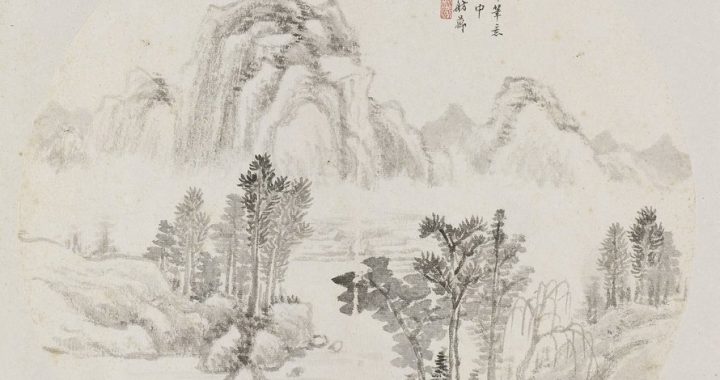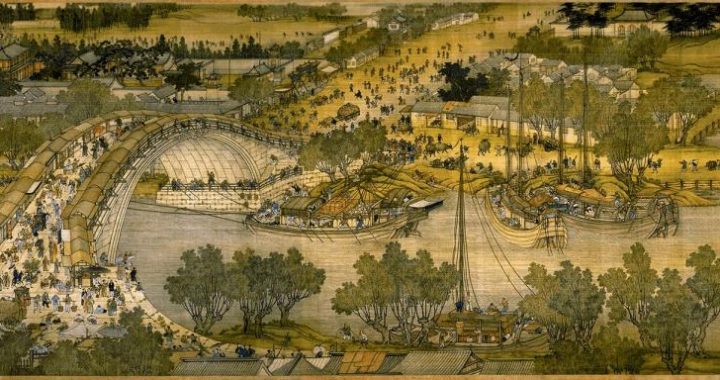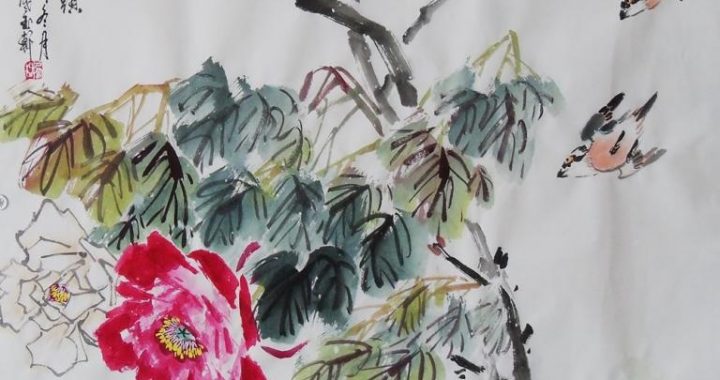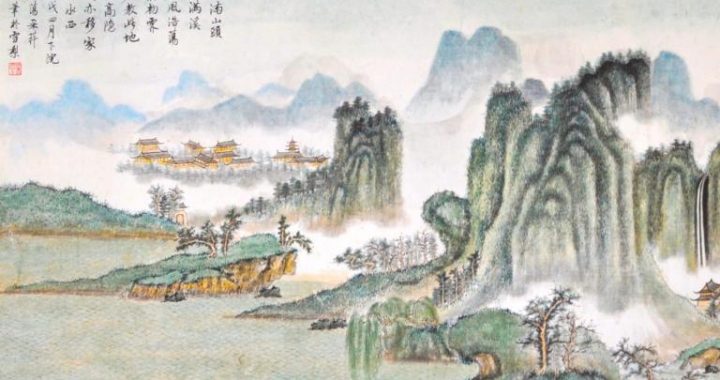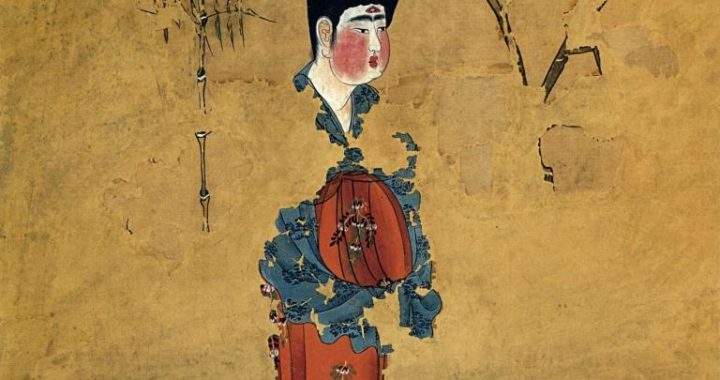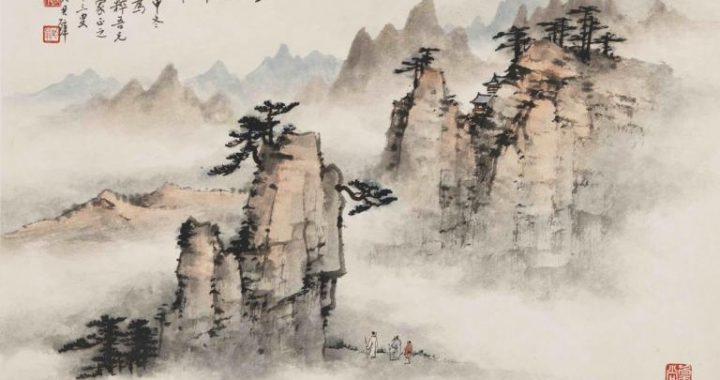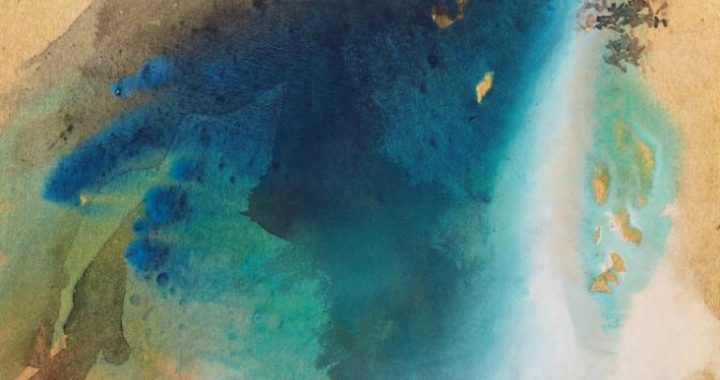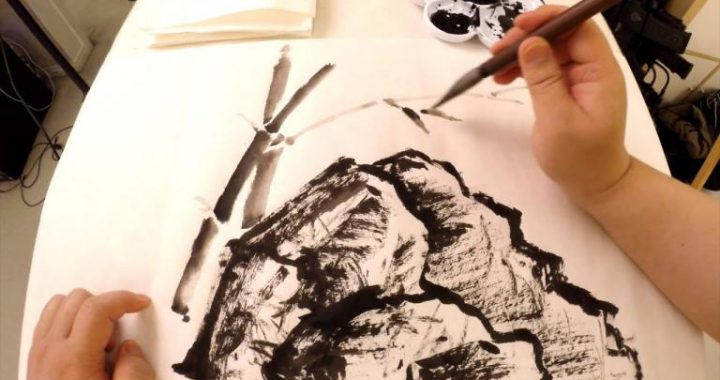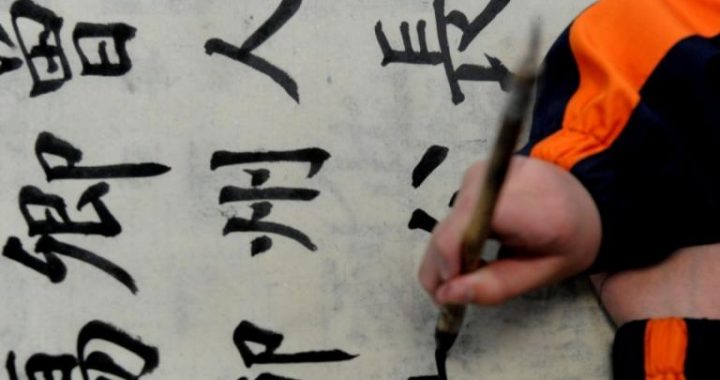Development of Theatre Troupe
5 min readPerfomance of traditional opera has to be completed by joint efforts of a team, which is called”theatrical troupe”.
Theatrical troupe appeared no later than the Song dynasty, for commercial performances in goulan were usually organized by such an organization. According to the records from the Song dynasty, troupe members in that era all belonged to the same family and thus were bonded by kinship. This practice was carried on in the Yuan dynasty, but with more people added, usually having twelve members. For instance, in a Yuan tomb unearthed in Yuncheng, Shanxi province, there are murals depicting a troupe of eleven members.

From the mid Ming dynasty, theatrical troupes were formed by actors of different backgrounds. When Wei Changsheng,a notable actor during the reign of Emperor Qianglong, moved from Sichuan to Beijing and joined Shuangqing theatrical troupe, the once dismal troupe flourished again. This indicated that theatrical troupes at the time were no longer based on kinship. Some nobles had their own family troupes.
One of the examples is the “family theatrical troupe”owned by Jia family in A Dream of Red Mansions. Folk troupes were traveling from one place to another, and often bullied by local villains. To survive, some theatrical troupes turned to protectors who, usually a type of local ruffian, gradually became troupe heads, taking care of the troupe’s operations, looking for performing opportunities and paying actors. Some other troupes, instead of looking for protectors, elected an experienced and respectable actor as head of theatrical troupe to deal with daily operations. Cheng Changgeng,a renowned Peking opera performer, is an example of the second case.
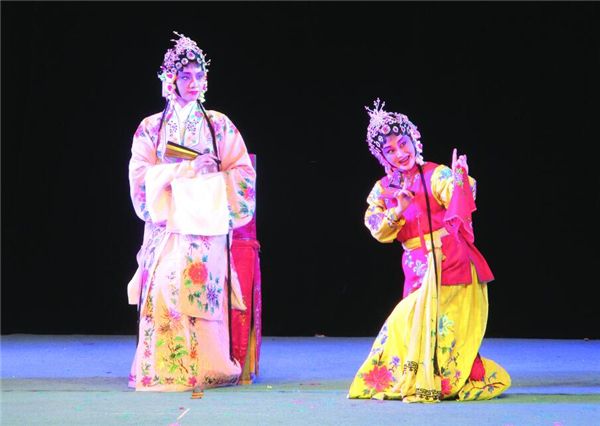
Performers of a theatrical troupe, more often than not, were bought from their parents when they were still kids. Once sold, they were not allowed to meet their parents. Thus, many actors took their theatrical troupe as home, once the troupe was dismissed they would have nowhere to go.
In the same city, the residences of theatrical troupes tended to cluster in one place, examples of which include”Zhongqu”in the Northern Song, Goulan Hutong and Music-performing Hutong in the Yuan dynasty, and Hanjiatan, the most famous trouperesidence in the Qing dynasty. Inside a theatrical troupe there were “regulations to be observed. After setting up, the first thing for a theatrical troupe was to worship God of Opera. In the Qing dynasty theatrical troupes in most regions worshiped God of Founder, and Founder’s temple built by Qing opera performers can beseen everywhere. God of Opera was at times called God of Happiness by the performers from Beijing. Some other local theatrical troupes had their own God of Opera too.
Seniority in a theatrical troupe was greatly emphasized with such titles as “xiong”(elder brother),”shu”(uncle),”zu”(grandfather) and “shi”(teacher) denoting different seniority; love affairs were deemed as offence against god and thus was a taboo; and the actor of clown(choujue in Chinese) was the highest in status in a troupe.
It’s rare for a theatrical troupe to perform just in one place. Usually, it toured the country all year. Troupes of kunqu once had performance tour across the country after kunqu became popular. Later theatrical troupes of qinqiang also traveled to Beijing and presented an amazing show. Booming of the teahouse stage inthe Qing dynasty gave theatrical troupes in cities the opportunity to perform justlocally, while touring from one teahouse to another within the same urban area. It’s quite often for commercial theatrical troupes to take a period off in the hot summer, which was termed as “xiexia”(take a break in summer). Theatrical troupes in Beijing would also take a week off at the end of lunar year, which was termed “fengtai”(seal the stage. However, some theatrical troupes, such as luantan theatrical troupes in Yangzhou, performed all the year round.

Stage costumes and props used in traditional opera are called itinerant xingtou (actor’s costumes and paraphernalia). According to Notes of Yangzhou Pleasure-boat, in kunqu of the Qing dynasty, there were four types of itinerant xingtou-“yi”(costumes),”kui”(helmet),”za”(miscellany) and “ba”(handle), each was loaded i a separate trunk. Costumes trunk had two different sizes: the bigger one was for coat and the smaller one for cotton clothes; helmet trunk was loaded with crowns, helmets, kerchiefs and gauze hats; miscellany trunk contained boots, shoes, masks and musical instruments; and handle trunk was where various weapon props were put.
Later theatrical troupes of Peking opera needed more costumes, so the costumes trunk at the time became three sizes. Xingtou prepared by an actor himself was called “personal xingtou”. This practice was initiated by Wei Changsheng,a prominent qinqiang actor, in the reign of Emperor Qianglong. From then on, all notable actors had personal xingtou. Xingtou used by whole traditional troupe were referred to as “public xingtou”. In the Qing dynasty, it was very common for traditional troupes to compare with each other in terms of xingtou. While traditional troupes of royal family in the area of Jiangsu and Zhejiang province went to towns to buy xingtou, many folk traditional troupes had to rent them due to short budget.
In the past, it was very particular about what plays should be staged and how advertising should be made. In the Yuan dynasty,a poster called “xizhaozi”would be put up every day by goulan, informing people what was on that day. Sometimes, the repertoire would be written on paper and stuck to beams for audience to pick up. In teahouse theatres prevailed in the Ming and Qing dynasties, traditional troupes post the programme daily and audience bought tickets for their favorite shows. Unlike teahouse theatres, hall performance with hired performers had a different practice, usually an elderly from a traditional troupe first presented a programme to the host, then the troupe would ask for seat and only after the host granted seats couldmusicians sit down and start playing. There was much to learn about selecting a show because it should either avoid violating a taboo or help the host flatter some viewers. As a result, selecting show even became a means for some unfriendly audience to vie with each other.
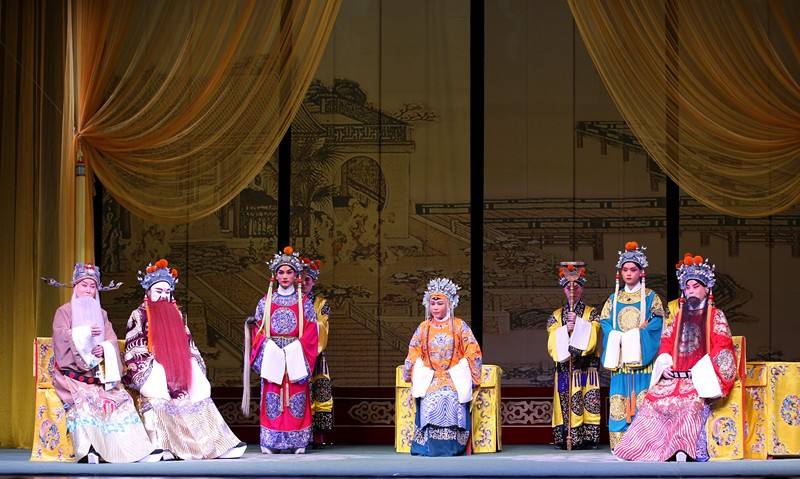
In the Qing dynasty, opera performers founded a Pear Garden Union (royal acting and musical academy founded during the Tang dynasty, now refers to circle of traditional opera.) to protect their own interests. The Union was responsible for coordinating interpersonal relations among performers, resolving conflicts, taking part in public activities on behalf of the actors and safeguarding their common interests. The exact name of Pear Garden Union varied with regions. In Yangzhou and Suzhou, it was called the General Administration of Pear Garden. In the late Qing dynasty, it used to be called “Temple of Loyalty”,”Beijing Public Welfare Association of Pear Garden”,”Beiping Pear Garden Union”, etc. The earliest records of the Pear Garden Union were made during the reign of Emperor Yongzheng of the Qing dynasty.
